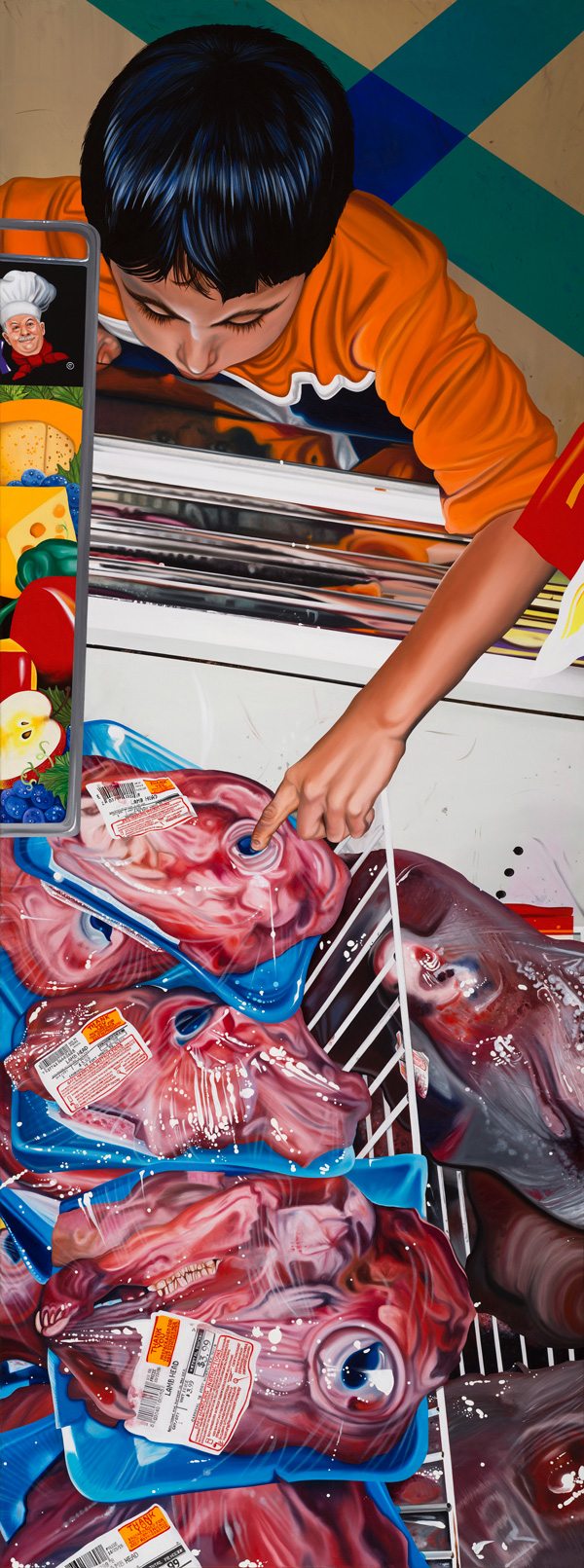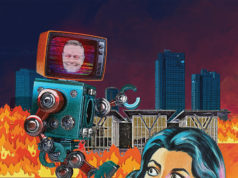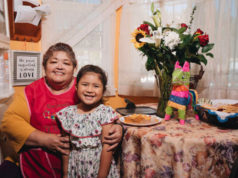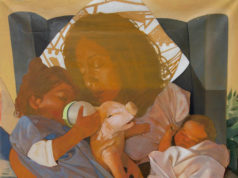Taking heavy precautions, the directors of the Fort Worth Art Dealers Association (FWADA) have brought back Fall Gallery Night as a weeklong event that features around three dozen galleries. Not every FWADA member was ready to reopen to the public, but the gallery options once again cover central Fort Worth, the North Side, the TCU area, and Arlington.
FWADA directors recommend reaching out to every gallery or viewing the venue’s website for details on how each art space is handling entry. Some galleries are requesting appointments, offering timed entry, or showcasing works virtually. As always, wear a mask, wash your hands, and stay home if you are feeling unwell.
The regionally renowned Artspace 111 is celebrating its 40th anniversary with To 40 More!, a showcase of selections from every one of the gallery’s 32 painters, sculptors, and installation artists. The once private studio of twin brothers Daniel and Dennis Blagg has created a visually resplendent show that features local treasures Carol Ivey, Nancy Lamb, and Winter Rusiloski, among many others.
Greeting gallerygoers is Pat Gabriel’s “Immanent Domain,” a large rendering of a flowering tree that swallows up much of the foreground. A lightly cloudy steel-blue background and photorealistic barren landscape do little to detract from the white-flowered tree that burns with radiance. The reverence given to the placement and treatment of the tree elevates the large plant (and presumably the Earth) to godlike stature similarly to how Medieval iconography deified martyrs and saints on artistic pedestals.
Dennis Blagg takes a detour (sort of) from his popular sun-bleached landscapes of Big Bend National Park with “Dog House.” An empty room fills the entirety of the canvas. Sitting near the dilapidated back wall, a white dog looks at the viewer with an expression of ennui that has become the new normal of our homebound lives. Blagg’s signature landscapes make a subtle appearance behind two small windows. It was refreshing to see how the artist addressed the pandemic through his work.
Nancy Lamb’s “Cabrito Boy” is steeped in humor and dark undertones, like an off-color joke that makes you chuckle and wince at the same time. A small boy reaches over a grocery aisle of lambs’ heads (get it?) to poke one of the packaged head’s eyes. The large oil painting offers ample Easter eggs for the well-attuned. The artist’s signature is creatively hidden in plain sight, for example, and the expiration dates have symbolic meanings. Themes of ethnic diversity versus corporate homogony and Chinese wet markets intermingle in the thoughtful and masterful painting.
All of the works at To 40 More! are new or newish, and many works comment (subtly, of course) on our politically divided country and its xenophobic president. Artspace 111 is requesting reservations via Artspace111.com or its Facebook page. A 30-minute notice is fine, one gallery director said.
Fort Worth Contemporary Arts at TCU is one of a handful of galleries that is presenting its works virtually. “Caribbean Fantasia” by French artist Raphaël Barontini can be viewed via a 3D walkthrough available at Finearts.tcu.edu/art/events-and-programs through Saturday, September 26. One click on the 3D Walkthrough button swoops the viewer into a photorealistic rendering of the TCU gallery. The interface is easy to use and similar to Google Maps.
The centerpiece of Barontini’s show is a large canvas-based installation that occupies much of the gallery floor. The semi-transparent fabric creates a semicircle in which the viewer can become immersed. The fantasia theme plays out via vibrant blues, purples, and yellows that lend a tropical feel to the work. Three heroically poised Black men in 18th-century officer’s garb ride atop horses.
Paintings of Black men posed like a triumphant Napoleon Bonaparte are exceedingly rare due to the disproportionate attention given to white figures in Western art. Kehinde Wiley uses this whitewashing of history to great effect by inserting strong Black figures into fictitious portraits. While Wiley recasts history, Barontini is acknowledging it. The figures in “Caribbean Fantasia” are pulled from leaders of the Haitian Revolution and are a powerful reminder of an event that precursed Black liberations in the United States several decades later.
1000 Words features 35 photos by local photographers, including several by Edgar Miller, who organized the Waterside show in partnership with Madeworthy magazine. Photography remains underrepresented in the local fine arts landscape, and the show offers an entertaining survey of what lens-wielding artists can convey.
Miller’s “Early Light Near” captures nature in flux. A desert landscape veiled in mist begins to take shape as the ground-level clouds are gently blown to the right of the frame by an unseen force. Susan Taylor’s “Texas Gothic” plays off the inner psychology of the viewer. The subject is a closely cropped stained-glass window that glows behind the end of a church pew. The photo felt constricting even as the golden hues of the window added some level of ease and comfort to the unwelcoming inner environment. Brian Hutson’s “Holiday Motel” is pure Americana mirth. The cartoonish hotel sign feels lost in time with its jutting spires and curved, yellow arched arrow pointing to some presumably equally fanciful nearby motel.
1000 Words can be viewed for the third and final time Saturday (5 to 8 p.m.) at 5924 Convair Dr. This Saturday marks the end of Gallery Week, but many of the shows will be available to view for weeks to come. This fall’s celebration of Fort Worth’s galleries was without large crowds and the bustle of party buses and DJs, but it offered a contemplative environment to be alone with incredible artworks. Experiencing Gallery Week without the typical party environment was a refreshing reminder of what this biannual event is really all about.












